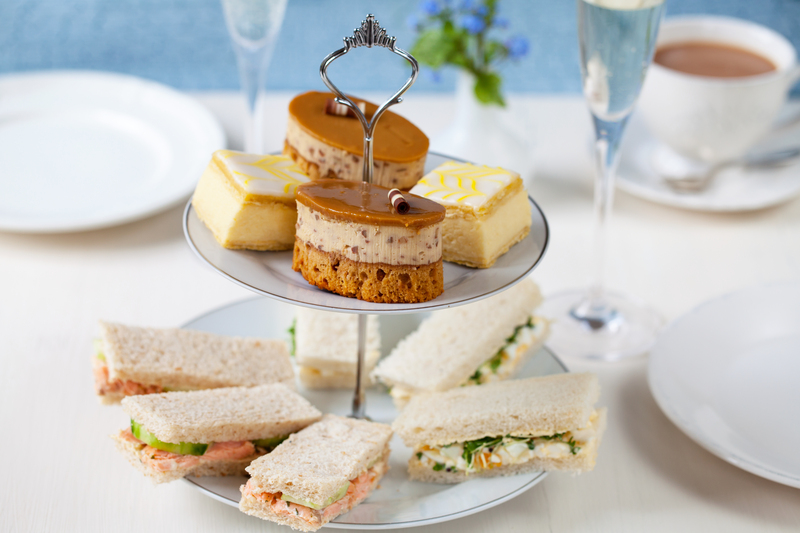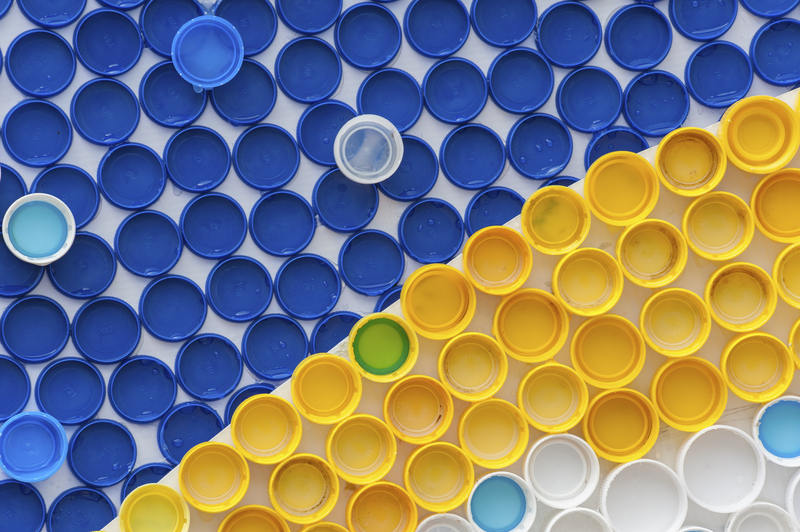Harness Stress Relief Through Organized De-cluttering
Do you ever feel overwhelmed by the sheer amount of stuff in your home or workspace? You are not alone. Studies have shown that excess clutter doesn't just make your environment untidy--it can also elevate stress and anxiety. Organized de-cluttering is emerging as a powerful tool for promoting mental clarity and emotional well-being. In this comprehensive guide, we'll explore how harnessing stress relief through organized de-cluttering can transform your life, boost productivity, and create a peaceful, enjoyable living space.

Understanding the Link Between Clutter and Stress
Before diving into effective decluttering strategies, it is important to recognize the science behind the relationship between clutter and stress. Clutter can:
- Overwhelm your senses: Too many visual stimuli can increase cortisol levels--the body's primary stress hormone.
- Impede focus: A disorganized environment can make it hard to concentrate, leading to frustration and reduced productivity.
- Create guilt and anxiety: Seeing piles of unused items may trigger feelings of guilt about procrastination or perceived lack of control.
- Contribute to poor sleep: Studies have linked messy bedrooms to difficulty falling and staying asleep.
_By understanding these connections, we start to realize how a simple act like tidying up can make a world of difference for our mental health._
Why Organized De-cluttering Is More Than Just Cleaning
Many people confuse de-cluttering with basic cleaning, but organized de-cluttering for stress relief is an intentional process. It involves thoughtfully sorting, organizing, and removing items that no longer serve a purpose. This mindful approach helps cultivate a harmonious environment and brings a sense of accomplishment and control.
Key Benefits of Organized De-cluttering for Stress Relief
- Enhanced Focus and Efficiency: A tidy environment reduces distractions, making it easier to accomplish tasks and meet goals.
- Improved Mood: Living in a well-organized space can elevate your mood and promote positivity.
- Better Physical Health: Less clutter means fewer hiding spots for dust and allergens, contributing to a healthier space.
- Heightened Creativity: A clear environment fosters creative thinking by allowing your mind to roam freely.
- Quality Relationships: Shared spaces become more enjoyable, reducing tension between family members or roommates.
The Psychological Impact of De-cluttering
Organized de-cluttering techniques work on more than just the physical space. Clearing out your environment creates an external reflection of your inner mental state. As the chaos diminishes, you may notice a reduction in anxiety and a newfound peace of mind. Let's explore how you can put this life-changing process into action.
Step-by-Step Guide to Harnessing Stress Relief Through Organized De-cluttering
1. Set Clear Goals
Start by identifying which areas in your home or office cause the most stress. Is it your overflowing closet, a cluttered kitchen, or a chaotic work desk? Setting specific, measurable, attainable, relevant, and timely (SMART) goals can give your de-cluttering session a clear direction.
- Example: "I will clear my work desk of unnecessary papers and supplies by Friday."
2. Gather the Right Supplies
Before you begin, collect bins, trash bags, labels, and cleaning products. Having everything prepared minimizes interruptions and helps keep you focused on the stress-relieving organized de-cluttering process.
3. Take it One Step at a Time
Don't try to tackle your whole house in one go! Focus on one area at a time to prevent overwhelm:
- Start with a single drawer or shelf.
- Move to larger spaces as you build momentum and confidence.
Remember, progress is more important than perfection.
4. Follow a Sorting System
Effective de-cluttering relies on having a system. The most popular method is the four-box technique:
- Keep: Items you use regularly and love.
- Donate: Items in good condition, but no longer needed.
- Recycle: Items suitable for recycling.
- Trash: Broken or unusable items.
Tip: Try not to agonize over each decision. If an item hasn't been used in the last year, consider letting it go!
5. Organize Thoughtfully
Once sorted, focus on organizing the items you've chosen to keep. Store similar items together, use labels, and make commonly used things easily accessible. This effort pays off every day in reduced stress and increased efficiency.
6. Incorporate Mindfulness
Organized de-cluttering for calming the mind is most powerful when done mindfully. Play soothing music, take deep breaths, and notice your emotional reactions to items. Does a particular object spark joy or bring up stress? Listen to these cues as you decide what stays or goes.
7. Establish a Maintenance Routine
De-cluttering isn't a one-off event. Set aside 10-15 minutes weekly to maintain your space. This simple routine will keep stress at bay and prevent clutter from creeping back in.
Organized De-cluttering Methods: Find Your Perfect Fit
There's no single "right way" to de-clutter, but some methods have gained international acclaim for their effectiveness:
The KonMari Method
- Created by Marie Kondo, this technique focuses on keeping only those items that "spark joy."
- Instead of de-cluttering room-by-room, tidying is done by category (e.g., clothes, books, paperwork).
Minimalism
- Adopts the principle of "less is more."
- Encourages you to own only what you truly need and value, which simplifies decision-making and significantly reduces stress.
Swedish Death Cleaning
- A less morbid process than it sounds, this Scandinavian method encourages gradual de-cluttering with a view toward making life easier (and less stressful) for yourself and loved ones.
Choose a method that resonates most with you, or mix and match as needed.
Stress-Relief De-cluttering for Specific Areas
Certain spaces in our lives tend to accumulate clutter more than others, and each poses unique challenges and opportunities for stress relief through organized de-cluttering:
Home Office
- Keep only essential items on your desk.
- Digitize paperwork to minimize piles.
- Use drawer organizers for small office supplies.
- _A clean workspace directly impacts your mental clarity and productivity._
Kitchen
- Toss expired food and duplicate gadgets.
- Arrange pantry items by category.
- Designate a "clutter-free" countertop area to make cooking a happier, less stressful experience.
Bedroom
- Store off-season clothing and shoes elsewhere.
- Utilize under-bed bins and drawer dividers.
- Keep nightstands tidy for a peaceful nighttime routine.
- _A calm, uncluttered bedroom promotes restorative sleep._
Living Room
- Store media (books, magazines, remotes) in baskets or shelves.
- Limit decorative items to favorites for a serene atmosphere.
- Encourage family participation to maintain tranquility.
Overcoming Challenges: When De-cluttering Feels Overwhelming
Not everyone finds it easy to let go. Organization for stress relief can stir up emotions, memories, or even anxiety. Here's how to navigate common hurdles:
- Sentimental Attachments: Take photos of cherished items before donating. Remember, it's the memory that matters, not the physical item.
- Decision Fatigue: Work in short bursts and schedule breaks to avoid burnout.
- Lack of Time: De-clutter for just 10 minutes daily. Small efforts add up!
- Guilt or Shame: Practice self-compassion. Celebrate each step you take toward a more peaceful, organized space.
When to Get Extra Help
If your clutter feels insurmountable or affects your well-being, consider enlisting help from a professional organizer or a supportive friend. Sometimes an outside perspective can clarify decision-making and hasten progress.
Maintaining a De-cluttered, Stress-Free Environment
Once you've completed your organized de-cluttering for stress relief, it's vital to nurture your new space. Here's how:
- Implement a "One In, One Out" Rule: For each new item brought home, remove one to keep clutter in check.
- Schedule Seasonal Reviews: Declutter quarterly to deal with accumulated odds and ends before they pile up.
- Involve the Family: Make tidying a shared, ongoing practice.
- Maintain Mindfulness: Regularly assess your space and emotional state, adjusting as necessary.

How Organized De-cluttering Supports Long-Term Well-being
Beyond the immediate mental clarity and emotional relief, intentional, organized de-cluttering offers sustainable benefits:
- Fosters healthy habits - Reduces impulsive shopping and redundant purchases.
- Saves time - Makes it easier to find things and streamlines daily routines.
- Boosts self-esteem - Accomplishing de-cluttering goals boosts confidence and resilience.
- Supports mindfulness - Encourages you to live more intentionally every day.
Conclusion: Begin Harnessing Stress Relief Through Organized De-cluttering Today
Organized de-cluttering for stress relief is more than a passing trend; it's a transformative, life-enhancing practice. By consciously clearing physical clutter, you make space for what truly matters--calm, creativity, productivity, and joy. Whether you start small with a single drawer or overhaul your entire home, the benefits ripple through every aspect of your well-being.
Remember: Each step is progress. Celebrate your victories, and enjoy the peace and freedom that follow. It's time to embrace the power of organized de-cluttering and unlock your path to a more serene, balanced life--one tidy space at a time.